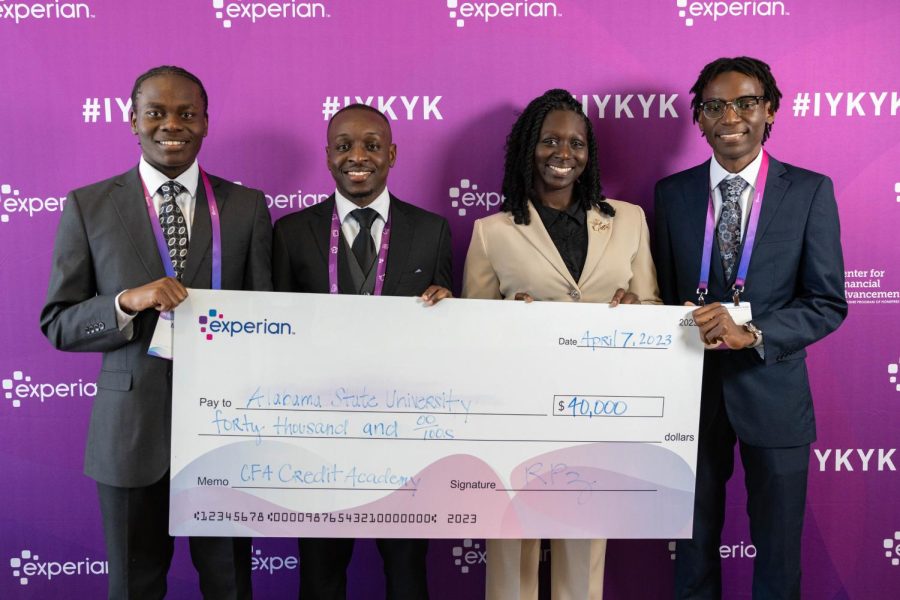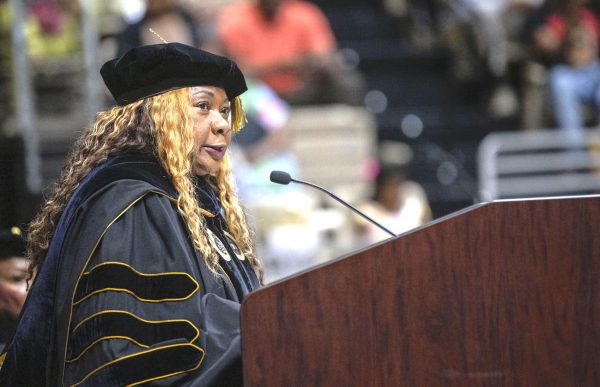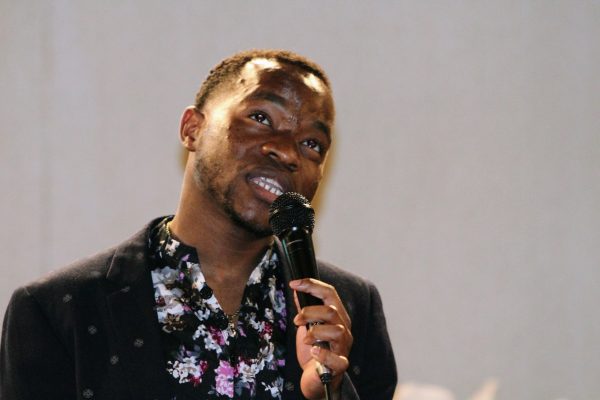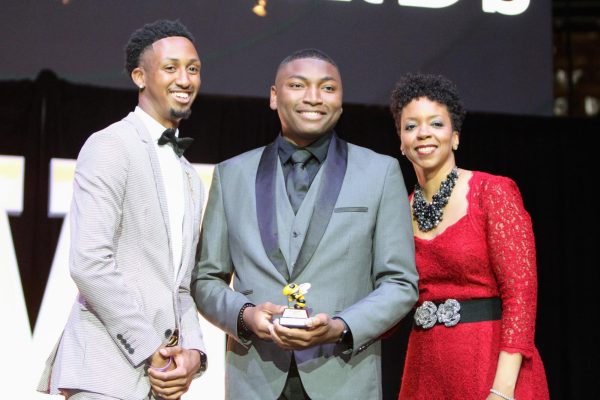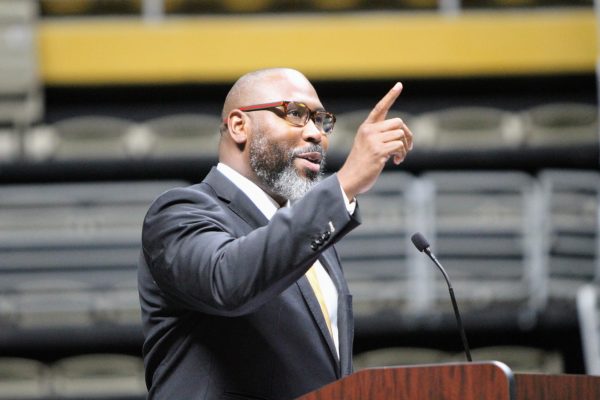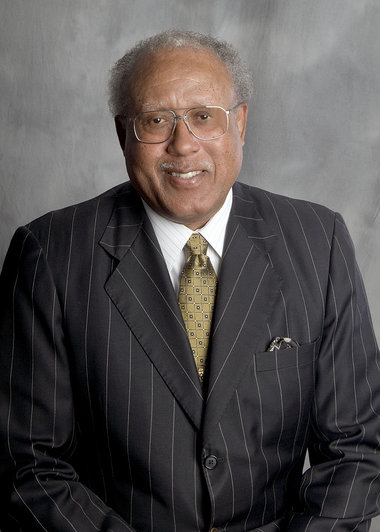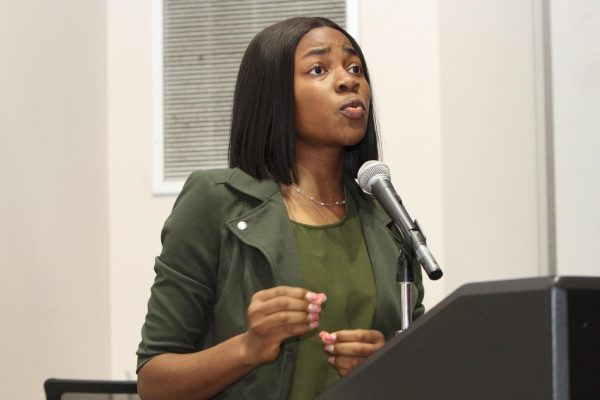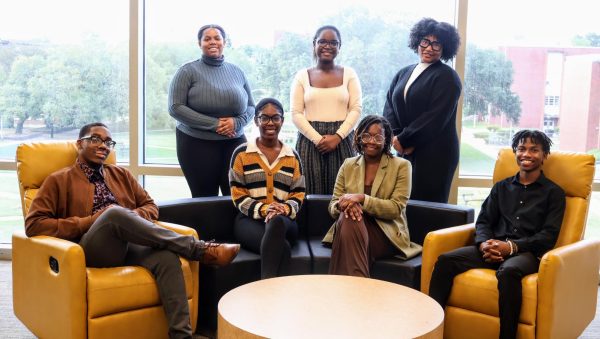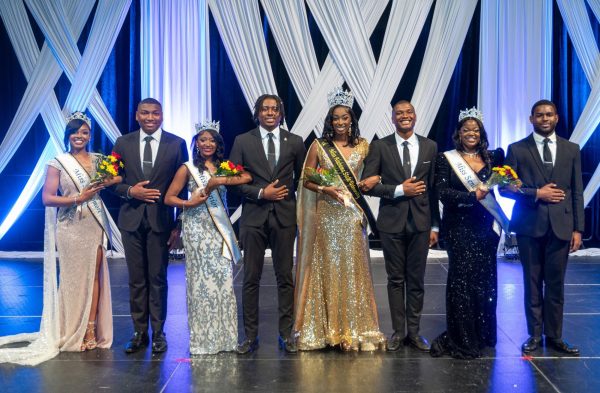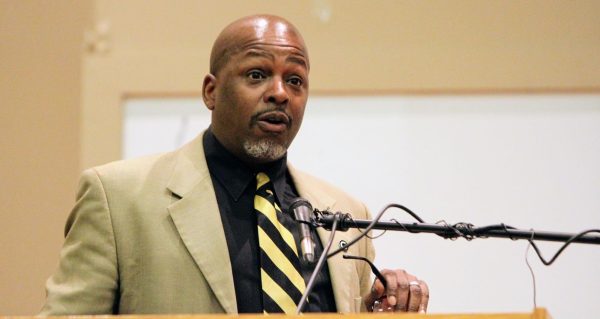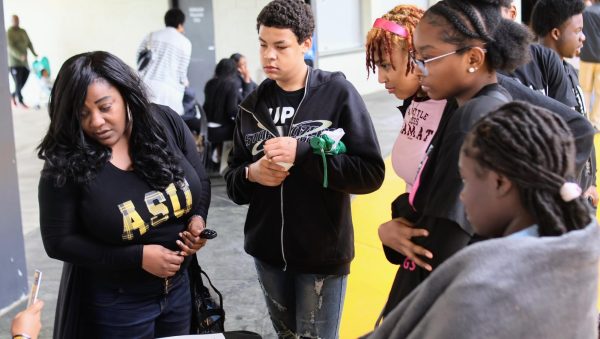CFA students win top spot in national contest
The CFA team representing Alabama State University pose with their $40,000 check after placing first in the IYKYK Hackathon. The team consists of (L-R) Mandlenkosi Sibanda, Takudza Modza, Janai Thompson and Thomas Mulashio.
April 15, 2023
Experian PLC and HomeFree-USA tasked 14 historically Black colleges and universities (HBCU) teams to create a program that could teach individuals between the ages of 18-24 about credit and financial literacy.
During the IYKYK (If You Know, You Know) Hackathon, a competition between the HBCUs, Alabama State University earned a first place ranking. The four-member team was formed by Sabrina Crowder, D.M., assistant vice president of Student Affairs/Student Engagement and Development and director of Career Services.
“This was our first year being a HomeFree-USA CFA certified school,” Crowder said. “They allowed us to accept as many scholars as we could, because we didn’t know how many were interested. It was all new so we tried to get as many students as we could and get them excited.”
The Alabama State University team chose to develop an app similar to games such as “Temple Run” and “Subway Surfer” to keep players engaged while teaching them these important skills.
“The credit learning application presents a gamified learning experience whereby users create a personalized avatar to embody their digital identity,” freshman team member and computer science major Takudza Modza said. “The experience commences with an endless runner game, wherein players navigate a course fraught with financial hurdles and obstacles, symbolizing real-world financial challenges. The application seamlessly integrates learning modules throughout the game, exposing users to critical financial concepts while reinforcing learning through immersive gameplay.”
The team surveyed their peers about what a perfect solution would be for them.
“The answers we got from the surveys and our research led us to believe a phone app that incorporates a game would work best,” team member Mandlenkosi Sibanda said. “We then worked on ‘Credit Learning Hub’, an app that uses a runner game to teach about credit. There is a chat platform on the application that allows users to interact with each other and ask questions. We also incorporated quizzes and reading material onto the platform to allow users to reinforce their financial knowledge using the conventional method of learning. There is a leaderboard that tracks progress and fosters competitive learning. We chose a phone app, because we realized that people have their phones everywhere, hence they can learn on the fly.”
The team attended the awards ceremony in Costa Mesa, California, which was a memorable experience for all.
“During our first trip to California, Experian gave us a fantastic tour. We arrived in Los Angeles and were then driven to Experian’s headquarters in Costa Mesa,” team member Thomas Mulaisho said. “Throughout our three-day stay, we had a delightful time, from dining at Italian restaurants to visiting Disneyland. I was struck by the beauty of California, with its impressive infrastructure and picturesque scenery that exceeded my expectations. There’s so much I could say, but one thing that stood out to me was Experian’s warm and welcoming environment. Despite being far from home, they made us feel comfortable and at ease. For that, I’m truly grateful.”
Alabama State University hopes to build a new team next year with an even bigger number of students with a wider variety of ideas to claim the top spot again. But despite the glory and rewards that come with winning, the team was satisfied with their work discovering a way to make learning about credit more approachable for their peers.
“It is important for college students to learn about financial literacy, because we are the next adults,” team member Janai Thompson said. “If we do not learn now how to make and manage our money correctly, we will not only fail in life but wouldn’t be able to pass down to our next generation.”


